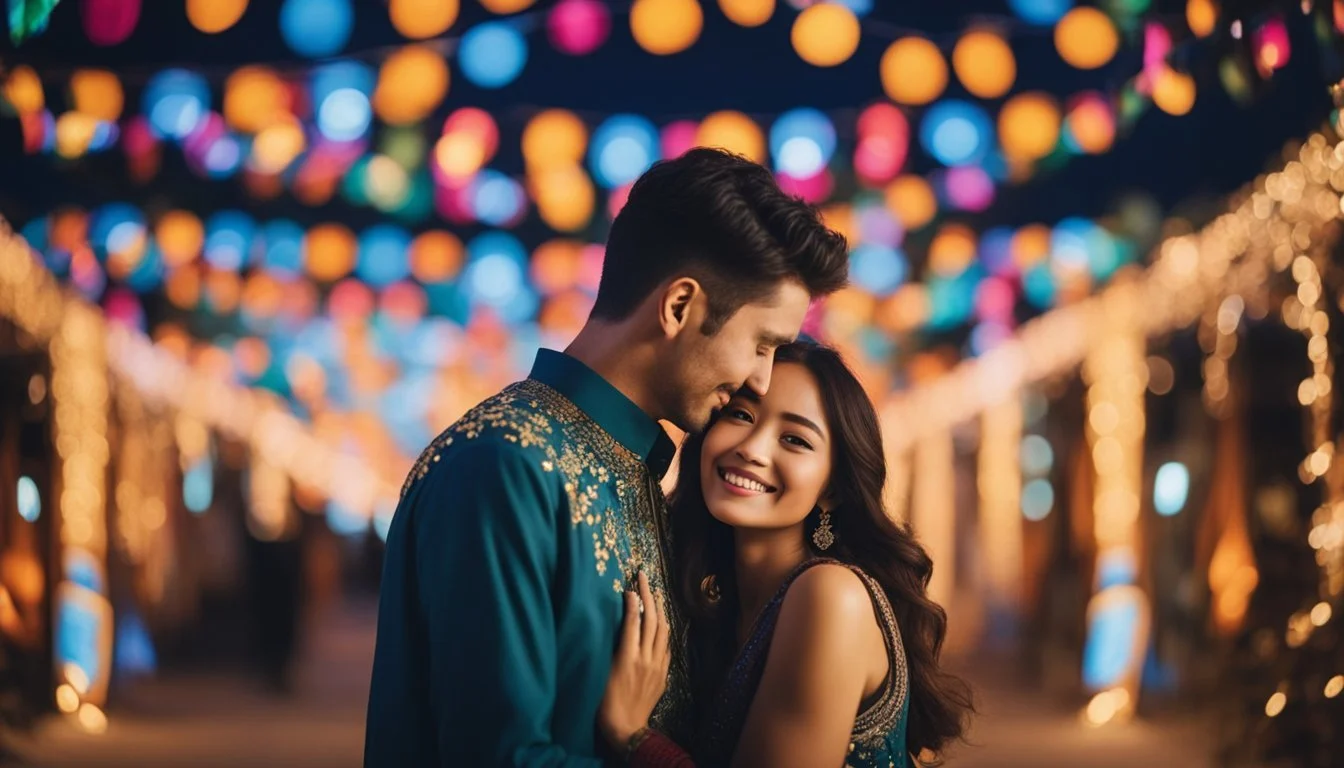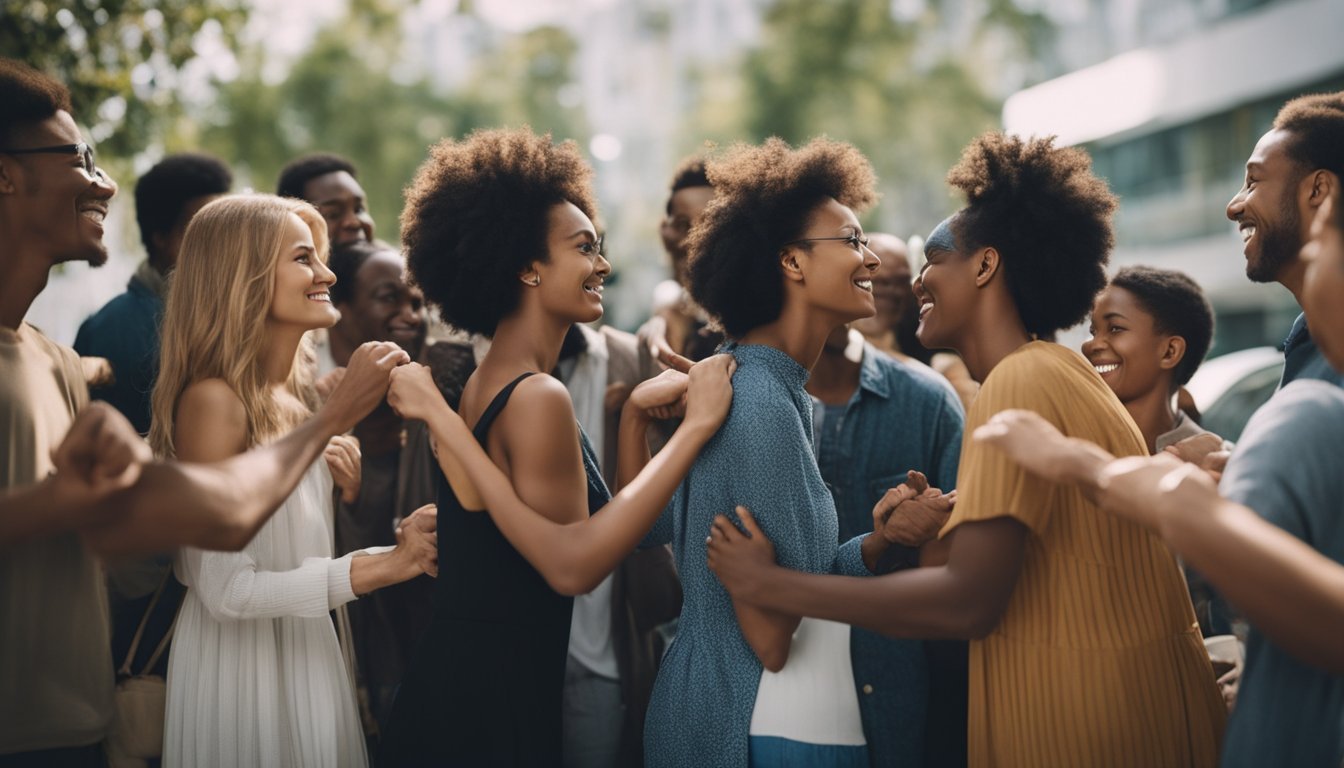4 Documentaries That Examine Love Across Cultures
Global Perspectives on Romance
Love is a universal human experience, yet its expressions and meanings can vary greatly across different cultures and societies. Documentaries exploring this theme offer viewers a unique window into how romance, relationships, and intimacy manifest around the world.
These films provide valuable insights into the diverse ways love is understood, pursued, and celebrated across cultures. By examining real stories and cultural practices, they challenge our assumptions and broaden our perspectives on this fundamental aspect of human life. Viewers can expect to encounter both surprising differences and reassuring similarities in how people approach love and relationships globally.
1) "Jane: An Abortion Service" directed by Kate Kirtz and Nell Lundy (1995)
"Jane: An Abortion Service" is a documentary that sheds light on a lesser-known chapter of women's history in the United States. The film explores the story of the Jane Collective, a clandestine group of women in Chicago who provided safe, illegal abortions from 1969 to 1973.
During this period, the Jane Collective performed nearly 12,000 abortions for women in need. The group operated in secrecy, offering their services at a time when abortion was still illegal in most parts of the country.
The documentary examines the motivations and experiences of the women involved in the Jane Collective. It provides insight into the challenges they faced and the risks they took to help other women access safe reproductive healthcare.
Kirtz and Lundy's film serves as a historical record of grassroots activism and women's rights advocacy. It offers a unique perspective on the abortion rights movement in the years leading up to the landmark Roe v. Wade decision in 1973.
2) "Lovesick" by Ann S. Kim and Priya Giri Desai (2018)
"Lovesick" explores the unique matchmaking efforts of Dr. Suniti Solomon in India. The documentary follows her work helping HIV-positive patients find love and companionship.
Dr. Solomon, known for identifying India's first HIV case in 1986, expanded her focus to address the emotional needs of those living with the virus. The film showcases her compassionate approach to matching individuals based on their health status, interests, and compatibility.
The directors, Ann S. Kim and Priya Giri Desai, spent eight years documenting Dr. Solomon's pioneering efforts. Their film offers an intimate look at the universal desire for love and connection, even in challenging circumstances.
"Lovesick" presents a hopeful narrative, highlighting how companionship can contribute to healing and well-being. It examines the intersection of cultural expectations, societal stigma, and personal desires in the context of HIV in India.
The documentary premiered at international film festivals, garnering attention for its unique subject matter and sensitive portrayal of its subjects. It provides viewers with insights into the complexities of love, health, and social norms in contemporary India.
More information on "Lovesick"
3) "Love in the Time of Fentanyl" directed by Colin Askey (2022)
"Love in the Time of Fentanyl" is a documentary that explores the opioid crisis in Vancouver's Downtown Eastside. The film focuses on a group of individuals operating a supervised drug consumption site.
Director Colin Askey provides an intimate look at the daily struggles and triumphs of those working to save lives. The documentary highlights the dedication of volunteers and staff at the Overdose Prevention Society (OPS).
Key figures in the film include Sarah, a founding OPS member, and Trey, a former heroin user who commemorates lives lost to overdoses. Their stories shed light on the human side of addiction and harm reduction efforts.
The film captures the exhausting yet essential work required to keep the site running. It showcases the community's resilience in the face of a devastating epidemic.
"Love in the Time of Fentanyl" received critical acclaim, winning the Colin Low Award at the 2022 DOXA Documentary Film Festival. It offers a poignant examination of love, compassion, and human connection amidst a public health crisis.
4) "I Am Not Your Negro" by Raoul Peck (2016)
"I Am Not Your Negro" is a powerful documentary that explores love, race, and American identity through the lens of James Baldwin's unfinished manuscript "Remember This House."
Director Raoul Peck weaves together archival footage, interviews, and Baldwin's own words to create a compelling narrative about the Civil Rights movement and its enduring relevance today.
The film examines Baldwin's relationships with civil rights leaders Medgar Evers, Malcolm X, and Martin Luther King Jr., offering a unique perspective on their lives and legacies.
Peck's documentary skillfully connects the past struggles of the Civil Rights era to contemporary racial issues, including the #BlackLivesMatter movement.
"I Am Not Your Negro" challenges viewers to confront uncomfortable truths about race in America and question long-held assumptions about love, identity, and belonging across cultural divides.
Through Baldwin's eloquent prose and Peck's masterful direction, the film offers a thought-provoking exploration of love's role in confronting systemic racism and fostering social change.
Learn more about "I Am Not Your Negro" on IMDb
Cultural Contexts of Love
Love manifests differently across cultures, shaped by historical, social, and traditional factors. Cultural norms and values deeply influence how people perceive, express, and experience romantic relationships.
Historical Perspectives
Ancient civilizations held diverse views on love. In ancient Greece, multiple forms of love were recognized, including eros (passionate love) and agape (selfless love). Classical Indian literature explored romantic love through works like the Kama Sutra.
Medieval European courtly love traditions emphasized chivalry and devotion. In contrast, arranged marriages were common in many Asian cultures, prioritizing family alliances over individual romantic choices.
The Renaissance period saw a shift towards more individualistic expressions of love in Western societies. This trend continued through the Enlightenment and Romantic eras, shaping modern Western notions of romantic love.
Influence of Traditions
Cultural traditions significantly impact love and relationships. In collectivist societies, family approval often plays a crucial role in partner selection. Some cultures practice dowry or bride price customs, linking marriage to economic exchanges.
Religious beliefs shape attitudes towards love and marriage. For instance, Hinduism views marriage as a sacred duty, while Buddhism emphasizes non-attachment in relationships.
Courtship rituals vary widely. In some Middle Eastern cultures, chaperoned dates are common. Japanese omiai (arranged meetings) blend traditional matchmaking with modern dating practices.
Cultural norms also influence public displays of affection. While common in Western countries, they may be taboo in more conservative societies.
Diverse Depictions in Media
Documentaries exploring cross-cultural love offer unique insights into diverse relationships. These films shed light on the complexities of human connections across different societies and traditions.
Film and Documentary Storytelling
Documentary filmmakers play a crucial role in portraying diverse love stories. They capture intimate moments and cultural nuances that might otherwise go unnoticed. These storytellers often employ a mix of observational footage and interviews to present authentic narratives.
Some documentaries focus on intercultural marriages, highlighting the challenges and joys of blending different backgrounds. Others explore how LGBTQ+ relationships are perceived in various societies around the world.
Filmmakers sometimes use creative techniques like animation or reenactments to protect the identities of participants in sensitive situations. This approach allows for more candid discussions about taboo topics in certain cultures.
Impact of Globalization
Globalization has significantly influenced how love across cultures is depicted in media. The rise of international dating apps and social media platforms has created new avenues for cross-cultural connections.
Documentaries now often feature long-distance relationships sustained through technology. These films explore how couples navigate time zones, language barriers, and cultural differences in the digital age.
The increasing mobility of people worldwide has led to more diverse love stories being shared. Filmmakers document the experiences of expatriates, international students, and migrants as they form relationships in new cultural contexts.
Some documentaries examine how traditional views on love and marriage evolve in response to globalization. They showcase intergenerational conflicts and the blending of cultural practices in modern relationships.






